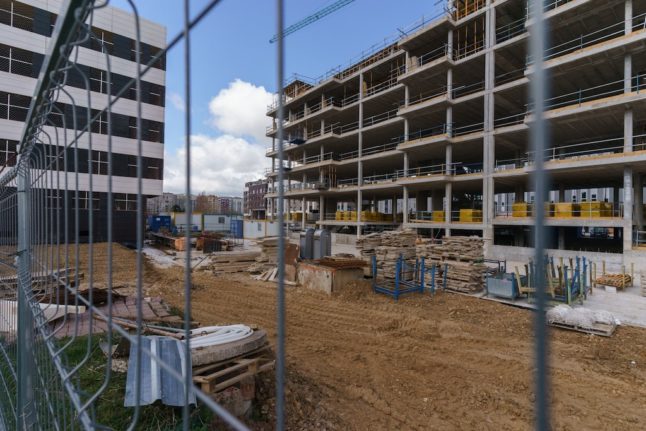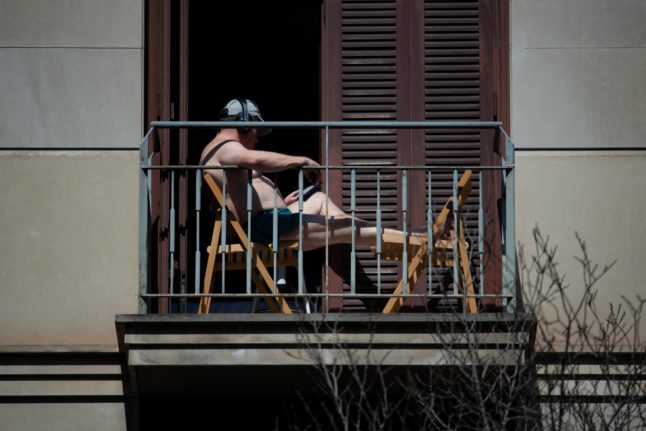According to a new report by real estate developer Culmia in conjunction with social research and consulting firm Gad3, around 761,000 new well-priced rental properties will be needed over the next decade to meet demand in Spain, plus an additional 442,000 social housing units.
The report specifies that this will be needed to satisfy demand, relax current market prices, and reduce the amount that households currently allocate to rent, which is currently on average 40 percent of their income.
The investment required to undertake these new developments stands at €108 billion (approximately €142,000 per home), of which 76 percent would come from private investment and only 24 percent from the public sector.
By region, Catalonia, Madrid, Andalusia and Valencia are the ones that require the most affordable housing and are also among the most populated.
Catalonia is the region that will need the most housing to meet demand, with a total of 225,000 reasonably priced rental homes in the next ten years. This will require a public investment of €1.01 billion, according to the report, due to the fact that private investment there is higher.
READ ALSO: Why there are half a million new homes in Spain that no one wants to buy
This is much less than what is needed in the region of Madrid, despite the fact that it will cost the capital region more. According to the report, the Madrid region needs 174,000 new affordable rental homes in the next decade, with a public investment that will reach €5.4 billion.
Andalusia is another region that requires more affordable rental housing. The 85,000 new units needed there will require an investment of €4.5 billion.
Valencia follows, also with 85,000 homes needed and an investment of €3.2 billion. Finally, the Canary Islands will need 46,000 homes with an investment of €2.4 billion.
Housing production in Spain has fallen by 86 percent compared to its highest rate in 2006. Around 80,000 homes are built per year and the national market is near the bottom of Europe in terms of public housing construction.
Of the total housing production, only 10 percent corresponds to protected housing and of that percentage, the majority (80 percent) comes solely from private investment.
READ ALSO: How Spain plans to address its huge lack of social housing
The report shows that if the same investment was given by the government, public and private collaboration would increase the production of public housing by 72 percent, going from 442,000 affordable homes to 761,000.
The creation of 150,000 new homes per year is expected in the most populated municipalities of the country, meaning that every year there will be a deficit of 20,000 affordable homes in certain areas.
According to the report entitled ‘Access to Housing and Affordable Rental Needs’, those households with salaries between €1,000 and €2,000 per month are those that have the highest degree of vulnerability, with a disproportionate amount of their salary going to rent – 50 percent in some cases. It is this group that will be the main beneficiaries of these new affordable homes.
The lack of 1.2 million rental properties does seem high, and Culmia does have vested interests in such a gargantuan task as one of the main developers in social housing in the country, but similar studies such as that conducted by Atlas Real Estate Analytics in 2023 put the figure needed as even higher: 1.83 million units.
One of the main paradoxes is that Spain does have many empty properties, but they are not located in the provinces that need them.
For example, in the provinces of Ourense, Ferrol, and Ponferrada in Galicia and Ciudad Real in Castilla-La Mancha, in addition to their surroundings, there is actually a surplus of houses.
READ ALSO: What are Spain’s plans to charge owners of empty homes more tax?
A report by UVE Valoraciones, a society associated with the Bank of Spain, states that there are 433,000 empty houses in Spain, but there are 13 provinces in the country that have a shortage of properties.
“Lack of housing is not a national problem, it is a problem in certain areas,” says Germán Pérez Barrio, president of the appraiser who authored the UVE report.
READ ALSO – Renting in Spain: Why it’s become very hard to find a flat to share



 Please whitelist us to continue reading.
Please whitelist us to continue reading.
Member comments